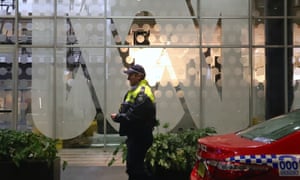
It’s not often the NT News misses a chance to show off their latest crocodile discovery.
But Monday’s front page may be exposing the biggest croc of them all.
In an unprecedented move, newspapers across the country are covering up their front pages with blacked-out stories to draw attention to laws eroding media freedom in Australia.
From Cairns to Burnie, Australians will wake up to censored newspapers across the country as a coalition of media companies launches the Right To Know campaign, to change six critical areas of law that are threatening freedom of the press.
Since 2002, there have been 75 pieces of federal legislation introduced that are designed to protect national security threats but have helped the government keep important – or embarrassing – information from the public.
Journalism, the campaign argues, cannot – and should not – be collateral damage in a democracy.
New research reveals that 87 per cent of Australians value a free and transparent democracy where the public is kept informed, but sadly, only 37 per cent believe this is happening in Australia today.
Australia sits at number 21 on the World’s Press Freedom index, in between Suriname and Samoa and far away from our friends across the ditch, New Zealand who have a much healthier ranking of seven. Norway is number one.
https://www.news.com.au/national/when-government-keeps-the-truth-from-you-what-are-they-covering-up/news-story/b7e8d17423bd679156c79e74d203d291
Today media companies from all over Australia unite in an unprecedented action to fight for press freedoms and the public’s right to know what’s going on in this country.
Australia’s Right To Know coalition of more than a dozen of the nation’s top media companies and industry organisations is campaigning for change to six critical areas of law that is allowing a veil of secrecy to being thrown over matters important to all Australians.
Since 2002, there have been 75 pieces of federal legislation intended to protect the public from national security threats but that have found new ways from stopping the public’s right to know what the Federal Government is doing.
New research reveals that 87 per cent of Australians value a free and transparent democracy where the public is kept informed, but sadly, only 37 per cent believe this is happening in Australia today.
While the government withholds information relating to aged care abuse, proposed new powers to spy on ordinary citizens, and the terms of land sales to foreign companies, Australians believe these are matters they absolutely have a right to know about.
The straw that broke the camel’s back were the raids on News Corp journalist Annika Smethurst (who now faces possible criminal charges, ironically because she reported the government was considering new powers to spy on all of us) and an unrelated raid on the ABC headquarters after a report detailing incidents of Australian special forces troops killing men and children in Afghanistan.

One day Australians might come to thank the Australian federal police for their raids on the ABC and the home of a News Corp journalist last June, the public integrity professor AJ Brown suggested during a Senate inquiry last week.
The raids – combing through the ABC’s computer system and the journalist Annika Smethurst’s kitchen cupboards and underwear drawers – were condemned around the world as outrageous and heavy-handed. But Brown was observing that they have also finally focused national attention on the rising tide of laws inhibiting press freedom and public interest whistleblowing.
For now, Brown’s optimism is premature.
The journalists do not know whether they will be prosecuted and their employers are still challenging the warrants in the high court.
Any concessions the government has made in response to the public shock and outrage have been nice words rather than concrete action.
In August the home affairs minister, Peter Dutton, issued a ministerial direction saying he expected “the AFP to take into account the importance of a free and open press in Australia’s democratic society and to consider broader public interest implications before undertaking investigative action involving a professional journalist or news media organisation in relation to unauthorised disclosure of material made or obtained by a current or former Commonwealth officer”.
And the attorney general, Christian Porter, has said he would be “seriously disinclined” to authorise the prosecution of journalists and that the director of public prosecutions would need his personal approval before proceeding with any charges.
Fine sentiments, but you don’t need to be an investigative reporter to see they fall well short of any kind of statutory guarantee, and as the Law Council president, Arthur Moses, told the National Press Club, the result would be “an apprehension on the part of journalists that they will need to curry favour with the government or, in particular, the attorney general in order to avoid prosecution”.
After a revised private sector whistleblower act passed late last year, the attorney general has also promised to review public sector whistleblowing laws, which cramp the public’s ability to find out about wrongdoing and maladministration at least as much as laws directly pertaining to journalism.




No comments:
Post a Comment